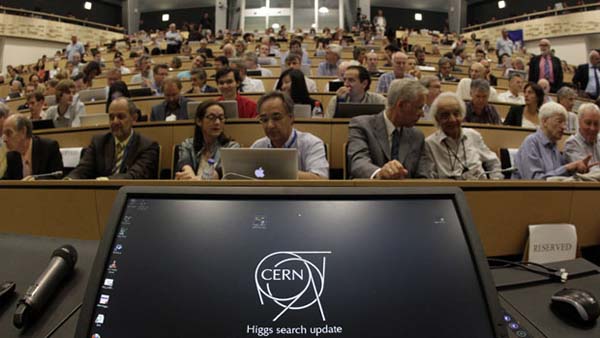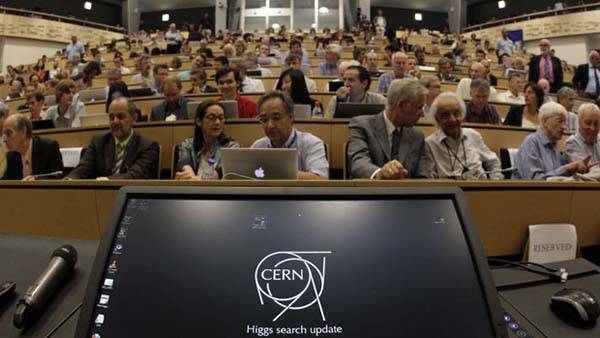CERN Uncertain: God particle "likely" discovered
Source: cbc.ca
Scientists working at the world’s biggest atom smasher in Switzerland say they have discovered what could be the long sought after "God particle," so named because it is believed to give all matter in the universe size and shape.Rolf Heuer, director of the European Centre for Nuclear Research (CERN), made the announcement early Wednesday, saying that researchers "have now found the missing cornerstone of particle physics."

Rolf Heuer, director of the European Center for Nuclear Research, told a seminar near Geneva that scientists discovered a new subatomic particle that is ’consistent with a Higgs boson.’ (Denis Balibouse/Reuters)
He described the discovery as a boson, a class of sub-atomic particle, but stopped short of confirming that it’s a Higgs boson — an extremely fine distinction.
"As a layman, I think we did it," he said. "We have observed a new particle that is consistent with a Higgs boson."
The announcement follows decades of work and billions of dollars spent on a project that has involved scientists across dozens of countries.
[...]
Read the full article at: CBC.ca
God particle is ’found’: Scientists at Cern expected to announce.
Scientists ’will say they are 99.99% certain’ the particle has been found
Scientists at Cern will announce that the elusive Higgs boson ’God Particle’ has been found at a press conference next week, it is believed.
Five leading theoretical physicists have been invited to the event on Wednesday - sparking speculation that the particle has been discovered.
Scientists at the Large Hadron Collider are expected to say they are 99.99 per cent certain it has been found - which is known as ’four sigma’ level.
Peter Higgs, the Edinburgh University emeritus professor of physics that the particle is named after, is among those who have been called to the press conference in Switzerland.
The management at Cern want the two teams of scientists to reach the ’five sigma’ level of certainty with their results - so they are 99.99995 per cent sure - such is the significance of the results.
Tom Kibble, 79, the emeritus professor of physics at Imperial College London, has also been invited but is unable to attend.
He told the Sunday Times: ’My guess is that is must be a pretty positive result for them to be asking us out there.’






















